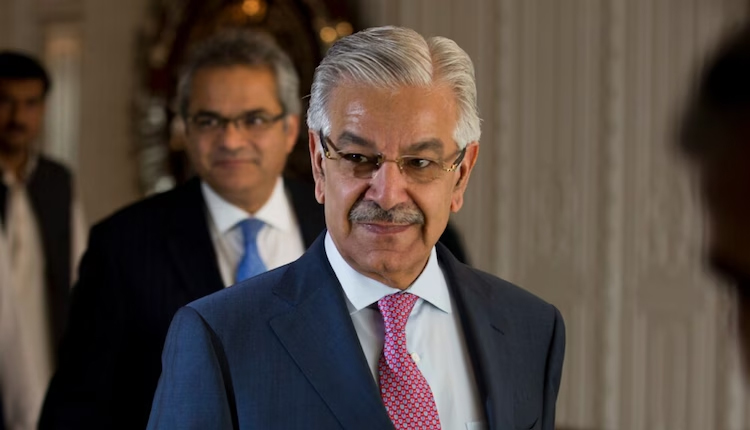Lahore: Pakistan Defence Minister Khawaja Asif, a close confidant of former Prime Minister Nawaz Sharif, made a public declaration to the effect that his country has a hybrid form of government with the powerful role of military control, a parallel to Indian misgivings concerning the declining factors of democracy in its other neighbour.
Asif told Arab News that the hybrid system used in Pakistan, whereby civilian and military control interact with each other, is not something that could be described as an ideal democratic government but rather one that is practical at the given time in that particular nation until economic and political problems and crises simmer down. This mixed system is working miracles as he argued, and perhaps in the 1990s, when Nawaz Sharif was a prime minister, things could have been different with the avoidance of civil-military conflict. This supports the longstanding foreign accusations that the army, rather than the democratically elected government of Pakistan, holds supreme power.
These statements made by Asif are days after the high-profile visit by Pakistan Army Chief Field Marshal Asim Munir to the white house to meet U.S. President Donald Trump, which he noted was a historic turning point for Pak-U.S. relations, and the credit should be given to a hybrid model. Dr Rasul Bakhsh Rais, a political analyst, said that the size of the military where foreign policy is concerned has been highlighted by the meeting since Prime Minister Shehbaz Sharif was not present in the talks, and no words about civilian oversight were said as the military led the discussion on foreign policy.
PML-N, the major party headed by the Sharif family, has been promoting its slogan Vote ko Izzat Do (Respect the Vote); however, Asif’s confession has been attracting intense criticism. According to former Prime Minister Imran Khan, the hybrid model is a “robbery” of the people, as his Pakistan Tehreek-e-Insaf (PTI) party accused the February 2024 polls of being rigged. Senior journalist Matiullah Jan termed it Asif, saying, “A minister who is bound to defend the Constitution is legitimising an unconstitutional system.”
The critics state that the hybrid model repeats the precedents of the military-dominated regimes of General Zia-ul-Haq and Pervez Musharraf. This is the third time this system trumps military interests over democracy; as Rais told India today, it illustrates the PML-N interest in shifting to the establishment in a bid to stay in power. X users echoed the nationwide indignation and labelled the model as the betrayal of democratic values.
India, which has repeatedly advocated for a stable and democratic Pakistan, views the hybrid model with concern. In an interview with Reuters anonymously, one senior Indian diplomat said that he was worried by Pakistan’s military supremacy within the region. The diplomat observed that India’s surgical strikes revealed Pakistan’s weaknesses, which could be interpreted as strengthening its military and tightening Pakistan’s dependence on India.
With the economic crisis in Pakistan, which is struggling with a 70 per cent debt-to-GDP level and is dependent on IMF bailout funds, the hybrid model does not appear to be as progressive as Asif claims it to be. As the military’s role is now widely recognised, the future of democracy in Pakistan is uncertain, creating complications for India and the region when dealing with a neighbour whose democracy appears to be merely nominal.



Comments are closed.